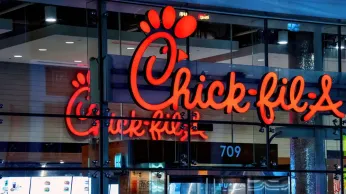
4 hours ago
Chick-Fil-A in Georgia Faces Outrage After Black Officer Denied Free Meal Offered to White Colleagues
READ TIME: 3 MIN.
A recent visit to a Chick-Fil-A in Augusta, Georgia by four Clover Police Department officers from South Carolina has ignited controversy and public debate over racial discrimination in service industry practices. Tracey Reid, a Black officer, reported that while he and his three white partners—all in uniform—stood together in line for breakfast, only the white officers were offered complimentary meals, a courtesy often extended to law enforcement and first responders. Reid was required to pay for his meal, an act that left him embarrassed and humiliated, according to his own account and corroborating statements from colleagues present at the scene .
The incident was documented by Reid and two other officers—Sergeant J. Gordon and Detective Thomas Barnette—who independently confirmed that the officers were together, in uniform, and treated differently by staff. Gordon stated, “We came in together, same uniform, stood in line, there was never a time we were not together while standing in line,” emphasizing there was no ambiguity about their status as a group . Barnette added, “He said he had to pay for his meal and it infuriated me. He looked sad and humiliated and that made me really mad.” Reid himself described feeling “kind of humiliated and embarrassed,” and said, “It seemed like it was a racial issue to me” .
Following the incident, Reid wrote a formal complaint to Chick-Fil-A’s corporate office, requesting retraining of staff at the Augusta location and improved compliance with civil rights regulations. The Augusta store owner responded with an apology and offered Reid two vouchers for free meals. However, Reid and his colleagues found the response insufficient, noting that the apology framed the event as a matter of “perception” rather than acknowledging the reality of the discrimination. “It wasn’t perceived; it actually happened,” Reid affirmed in a follow-up interview .
The store manager attributed the incident to a procedural mistake, claiming that the team leader who processed the transaction was not typically assigned to the register. This explanation did not satisfy the officers or the public, many of whom called for further action, including legal review and broader accountability for discriminatory practices .
The story quickly gained traction on social media and news platforms, with users expressing anger and disappointment over the apparent double standard. Many posts called for solidarity among officers and criticized the acceptance of free meals under discriminatory conditions. Some users suggested that all officers should have refused the complimentary food when their colleague was excluded, and others encouraged the pursuit of legal guidance to address the situation .
Calls for retraining and direct action from Chick-Fil-A’s corporate office have yet to yield public information about changes in policy or staff discipline at the Augusta location. The event has reignited discussions about the role of major food service chains in addressing racial bias and ensuring fair treatment for all customers, regardless of race, gender identity, or background.
As of this report, Chick-Fil-A’s corporate office has not issued a detailed public statement beyond the apology and meal vouchers offered to Officer Reid. Civil rights advocates and community leaders in Georgia continue to monitor the situation, urging further investigation and policy improvements. The story remains a focal point in discussions about race, equity, and accountability in American business and policing .






